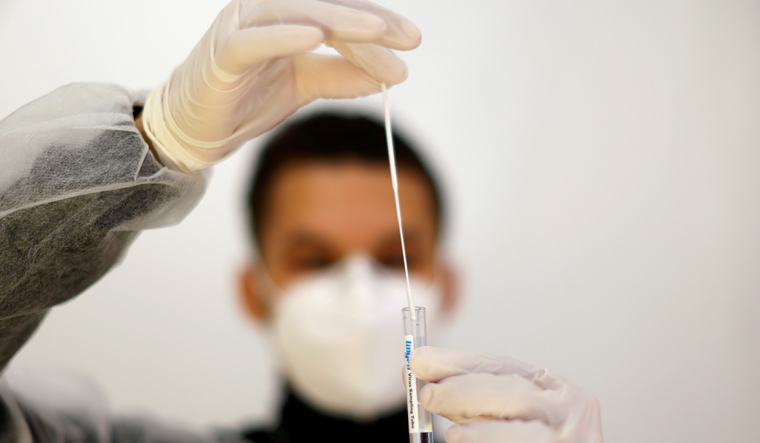The World Health Organisation has named a new coronavirus variant Omicron as a highly transmissible Variant of Concern (VoC), the same category that includes the Delta variant. This is a significant development, given that most variants are first classified as Variants of Interest (VoI) before graduating to VoC. The WHO suggested Omicron could pose greater risks than Delta, which is the world's most prevalent variant and has fuelled relentless waves of infection on every continent. Early evidence suggests an increased risk of reinfection compared with other highly transmissible variants, the WHO said. That means people who contracted COVID-19 and recovered could be subject to catching it again.
What is Omicron variant?
Omicron is outcompeting Delta in the current context in South Africa, according to infectious diseases expert Trevor Bedford, who stated that these viruses bear a remarkable constellation of mutations in the spike protein that are concerning in terms of predicted immune escape coupled with increased transmissibility. "The Omicron family does not descend from previously identified "variant" viruses and instead their closest evolutionary connection is to mid-2020 viruses. This extremely long branch (>1 year) indicates an extended period of circulation in a geography with poor genomic surveillance [certainly not South Africa] or continual evolution in a chronically infected individual before spilling back into the population," he analysed the data.
South African epidemiologist Tulio de Oliveira tweeted: "B.1.1.529 seems to spread very quick! In less than 2 weeks now, it dominates all infections following a devastating Delta wave in South Africa. Because this variant (B.1.1.529) can be detected by a normal qPCR due to deletion at Spike position 69-70 (like Alpha), it will make it easy for the world to track it."
Busy day on B.1.1.529 - a variant of great concern - The world should provide support to South Africa and Africa and not discriminate or isolate it! By protecting and supporting it, we will protect the world! A plea for billionaires and financial institutions. 1/8 tweets
— Tulio de Oliveira (@Tuliodna) November 25, 2021
Bedford pointed out the the striking accumulation of mutations in the S1 domain of the spike protein, with the Omicron viruses bearing many more S1 mutations than previously circulating variants.
Global travel bans imposed
In response to the variant's discovery in southern Africa, the United States, Canada, Russia and a host of other countries joined the European Union in restricting travel for visitors from that region.
The White House said the US will restrict travel from South Africa and seven other countries in the region beginning Monday. Biden issued a declaration later Friday making the travel prohibition official, with exceptions for US citizens and permanent residents and for several other categories, including spouses and other close family.
EU Commission President Ursula von der Leyen said flights will have to be suspended until we have a clear understanding about the danger posed by this new variant, and travelers returning from this region should respect strict quarantine rules. She warned that mutations could lead to the emergence and spread of even more concerning variants of the virus that could spread worldwide within a few months." It is a suspicious variant," said Frank Vandenbroucke, health minister in Belgium, which became the first European Union country to announce a case of the variant. "We don't know if it is a very dangerous variant."
The US restrictions will apply to visitors from South Africa, Botswana, Zimbabwe, Namibia, Lesotho, Eswatini, Mozambique, and Malawi. The White House suggested the restrictions will mirror an earlier pandemic policy that banned entry of any foreigners who had traveled over the previous two weeks in the designated regions.
The UK banned flights from South Africa and five other southern African countries and announced that anyone who had recently arrived from those countries would be asked to take a coronavirus test.
Canada banned the entry of all foreigners who have travelled to southern Africa in the last two weeks.
The Japanese government announced that Japanese nationals traveling from Eswatini, Zimbabwe, Namibia, Botswana, South Africa and Lesotho will have to quarantine at government-dedicated accommodations for 10 days and take three COVID-19 tests during that time. Japan has not yet opened up to foreign nationals. Russia announced travel restrictions effective Sunday.


